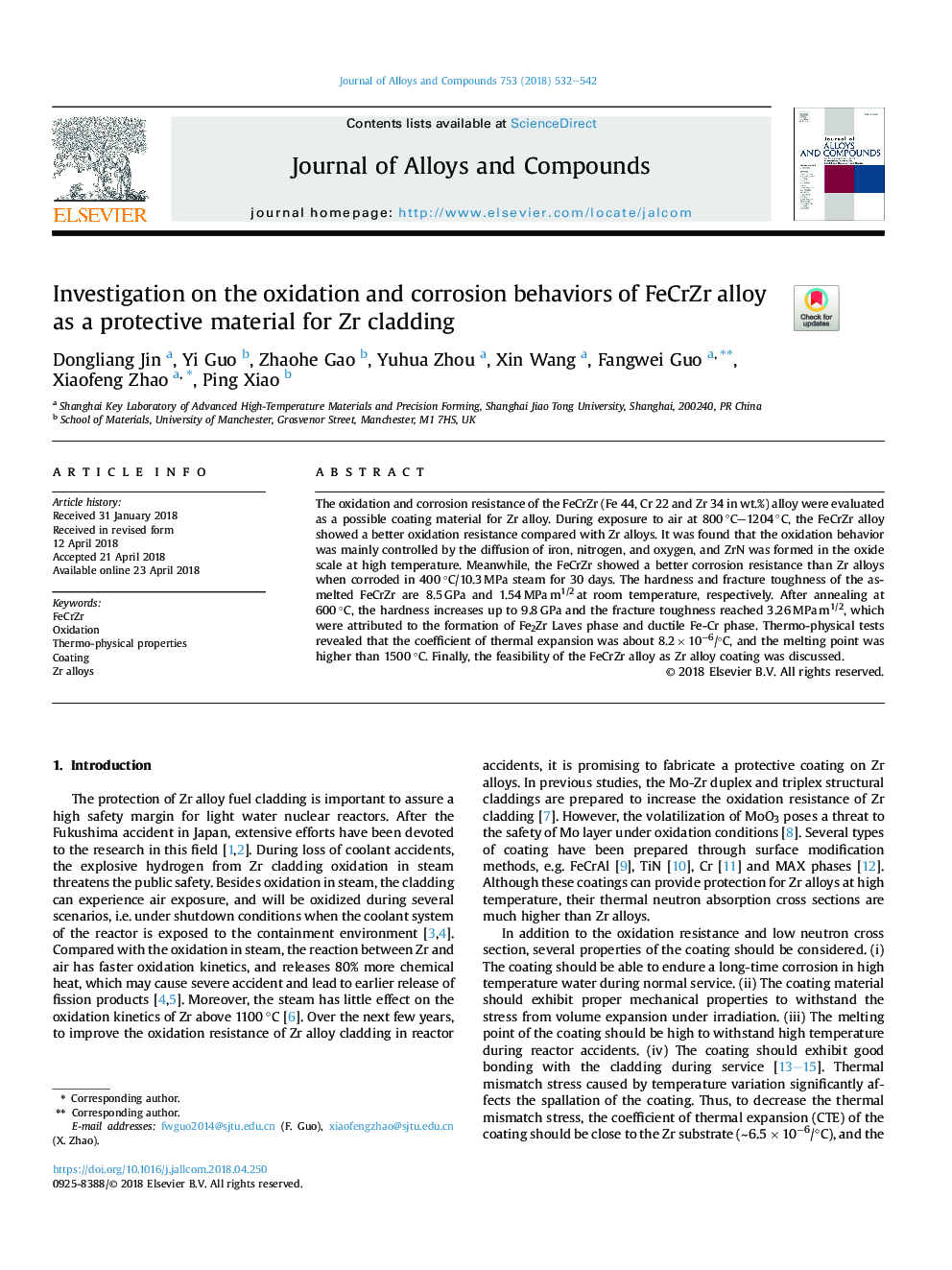| Article ID | Journal | Published Year | Pages | File Type |
|---|---|---|---|---|
| 7991552 | Journal of Alloys and Compounds | 2018 | 11 Pages |
Abstract
The oxidation and corrosion resistance of the FeCrZr (Fe 44, Cr 22 and Zr 34 in wt.%) alloy were evaluated as a possible coating material for Zr alloy. During exposure to air at 800â¯Â°C-1204â¯Â°C, the FeCrZr alloy showed a better oxidation resistance compared with Zr alloys. It was found that the oxidation behavior was mainly controlled by the diffusion of iron, nitrogen, and oxygen, and ZrN was formed in the oxide scale at high temperature. Meanwhile, the FeCrZr showed a better corrosion resistance than Zr alloys when corroded in 400â¯Â°C/10.3â¯MPa steam for 30 days. The hardness and fracture toughness of the as-melted FeCrZr are 8.5â¯GPa and 1.54â¯MPaâ¯m1/2â¯at room temperature, respectively. After annealing at 600â¯Â°C, the hardness increases up to 9.8â¯GPa and the fracture toughness reached 3.26â¯MPaâ¯m1/2, which were attributed to the formation of Fe2Zr Laves phase and ductile Fe-Cr phase. Thermo-physical tests revealed that the coefficient of thermal expansion was about 8.2â¯Ãâ¯10â6/°C, and the melting point was higher than 1500â¯Â°C. Finally, the feasibility of the FeCrZr alloy as Zr alloy coating was discussed.
Related Topics
Physical Sciences and Engineering
Materials Science
Metals and Alloys
Authors
Dongliang Jin, Yi Guo, Zhaohe Gao, Yuhua Zhou, Xin Wang, Fangwei Guo, Xiaofeng Zhao, Ping Xiao,
